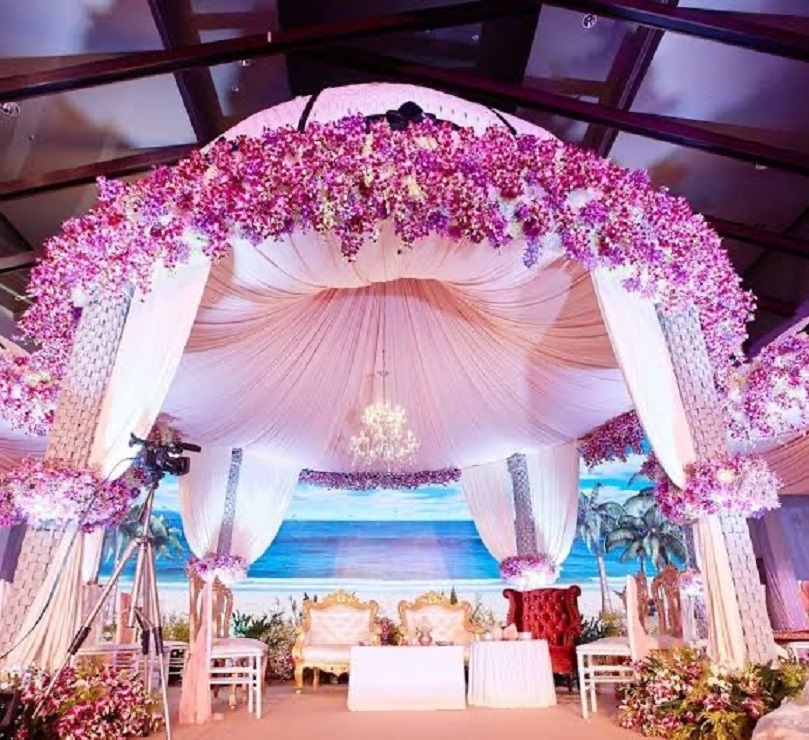Elite Kashmiri Weddings Lose Traditional Soul to Bollywood, Punjabi, and Foreign Influences
By: Javid Amin | Srinagar | 25 June 2025
The Culture Crisis Dressed in Gold and Glitter
In the valleys once echoing with sufiyana kalam and the subtle grace of wanwun, there is a new noise—a glittering confusion of Bollywood clichés, Punjabi wedding bangers, and performative extravagance. Elite Kashmiri weddings, once rooted in heritage and spirituality, have morphed into spectacles that increasingly resemble television serials rather than sacred unions. What was once a soulful celebration of identity, family, and faith has become a cultural costume party.
This article is not a critique of celebration. It is a heartfelt cry for reflection. At a time when Kashmiris are struggling to preserve their political, linguistic, and ecological identity, the weddings of the wealthy are unwittingly becoming stages for cultural amnesia.
Wanwun to Whispers—What We’ve Lost in Translation
Wanwun, the lyrical storytelling tradition sung by women, was once the emotional heartbeat of Kashmiri weddings. These traditional songs told stories of love, devotion, and community values. But today, their soft verses are being drowned by DJ bass and choreographed dances to Bollywood item songs.
Where once a wedding was announced by soulful tunes echoing through neighborhoods, now it’s through flashy Instagram reels and countdowns to “big fat Kashmiri weddings.”
The shift is not merely stylistic. It reflects a deeper disengagement from our roots. The young no longer remember the verses, the elders are sidelined, and traditional musicians are out of work.
What was a communal, participatory ritual has now become a stage-managed production.
Ayashi Over Adab—When Decadence Becomes the Definition of Class
Ayashi (excessive indulgence) has become the new synonym for status. Imported flowers, choreographed sangeets, designer lehengas shipped from Delhi, and makeup artists flown from Mumbai are now the norm. But where is the graceful simplicity that once defined Kashmiri weddings?
From hundreds of dishes served at wazwan to Mehndi nights turned into Instagrammable music festivals, today’s elite weddings are less about blessing a union and more about staging a spectacle.
Weddings are now judged by:
- The celebrity chef hired
- The drone footage captured
- The social media engagement it gets
Tahzeeb, once the cornerstone of Kashmiri culture, is now an afterthought.
Cultural Fusion or Confusion?—The Blend That Buries Identity
What are we really celebrating when Hindu chants, Pakistani drama sequences, and Punjabi bhangra dominate the rituals? This isn’t cultural inclusivity; it’s a curated confusion, a pick-and-mix buffet of trends that erode the distinctiveness of Kashmiri culture.
Our traditional rituals like:
- Rauf: A joyful group dance performed by women
- Chakri: Folk musical storytelling
- Rouf-wani: Sacred ritual songs
have been replaced by:
- Choreographed Bollywood dances
- DJ nights with Punjabi playlists
- Staged dramatic ‘pheras’ for aesthetic appeal
The spiritual essence of Nikah, the soul of Dastarbandi, and the quiet dignity of Mehr are now hidden behind props and filters.
The Pakistani Soap Opera Effect—Why Are We Copying Fiction?
Another troubling influence is the mimicry of Pakistani TV serial weddings—with exaggerated crying, heavily scripted rituals, and bridal dramatics.
These shows are designed for entertainment, not emulation. Yet, families now adopt these formats in real weddings, where every moment is filmed like a dramatic episode. The bride’s entry? Complete with fog machines, lights, and a soundtrack. The groom? Arriving in a chariot or luxury car, followed by a video crew.
Culture is being traded for cinematic effect.
When Kashmiriyat Becomes Background Noise
Weddings were once platforms for showcasing Kashmiriyat. They were celebrations of:
- Shared language and poetry
- Community-led rituals
- Respect for elders
- Collective cooking and participation
Now they serve as stages for exclusivity and imitation.
Where are the:
- Noon chai stalls?
- Traditional pheran-themed Mehndi ceremonies?
- Verses of Habba Khatoon sung by cousins?
Instead, what we get is:
- Champagne towers
- Hashtag-heavy themes like #TheBegWedding
- Bride and groom vlogs complete with transitions
Class Divide Through Celebration—Who Gets Left Behind?
The transformation of weddings into extravagant events has widened social gaps. For middle-class families, expectations have become impossible to meet.
A simple wedding is now considered backward. Pressure to match elite standards drives families into debt, and the focus shifts from spiritual bonding to performance anxiety.
What should be a joy becomes a burden.
This is not just a cultural crisis but a socio-economic one.
Are We Still Ourselves?—A Wake-Up Call to the Community
Every culture evolves. But evolution that forgets the past becomes rootless. The elite of Kashmir are the trendsetters. If they mimic everyone else, what message does it send to the youth?
Reviving our heritage is not anti-modern. It is about anchoring ourselves before we drift too far.
Let us:
- Record and teach wanwun in schools
- Support local artisans and musicians
- Normalize simple, soulful weddings
- Honor traditional rituals in ways that are relatable to the next generation
Bottom-Line: This Is an SOS, Not Nostalgia
This is not about rejecting other cultures or modernity. It is a call to balance and belonging. The weddings of the elite shape public imagination. And currently, that imagination is losing its Kashmiri soul.
Let us not forget:
- Simplicity can be elegant
- Culture can be modern without being diluted
- Tradition is not backward—it is identity
Before our celebrations become cultural masquerades, let us remember who we are. For in remembering, there is revival.
Let our weddings echo with the laughter of elders, the rhythm of rauf, and the scent of attar—not just the clicks of DSLR cameras.
Let us return from ayashi to adab, from show to soul.



